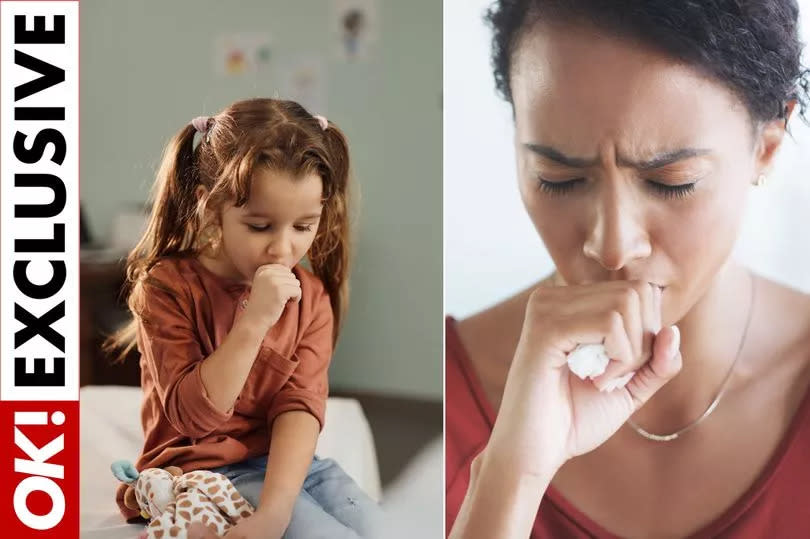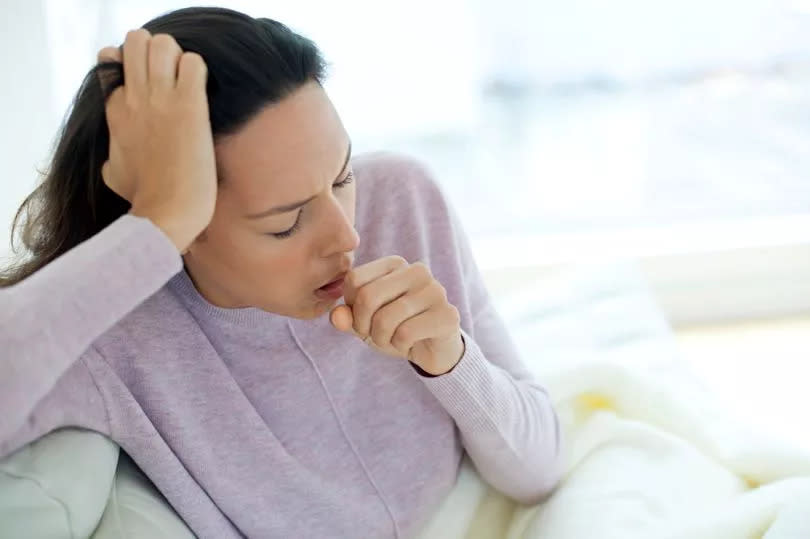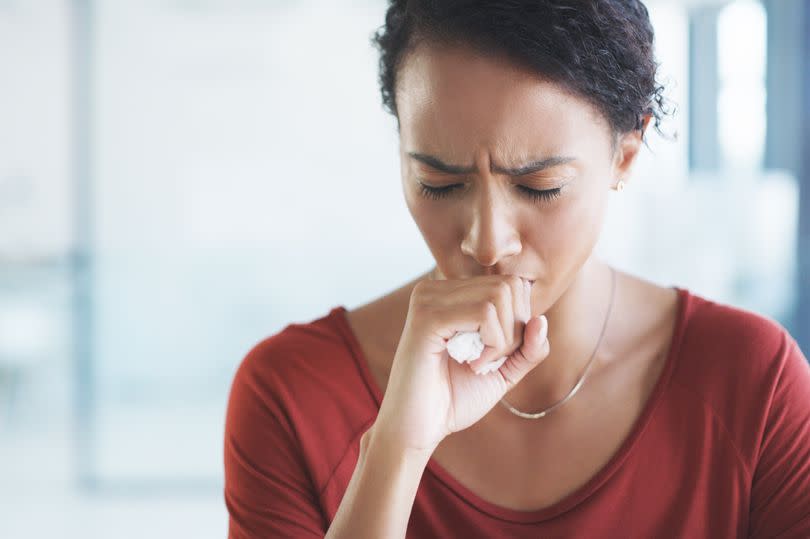‘I had to sleep upright for two weeks because of whooping cough - I couldn’t breathe’

We’ve all experienced an annoying cough – those tickly ones that are hard to shift in the night, or the ones that hit a bit harder in the chest – but there’s an older one doing the rounds and it’s spreading like wildfire.
Whooping cough – or the 100-day cough – is a highly contagious respiratory infection caused by the bacterium Bordetella pertussis and as of March 2024, data published by the UK Health Security Agency (UKHSA) shows there has been a continued increase in whooping cough cases since the start of this year.
The condition triggers severe coughing fits that often end in a whooping sound when the person breathes in. Dr Johannes Uys, a doctor at Broadgate GP, warns that at first many think it’s just a common cold.

“It seems harmless enough but then the infection progresses to severe and prolonged coughing fits. If left untreated, whooping cough can lead to complications like pneumonia, weight loss, urinary incontinence and rib fractures from severe coughing. In rare cases, it can be life threatening, especially in infants and older adults.”
Dr Andy Whittamore, clinical lead at charity Asthma + Lung UK, agrees. “It can be difficult to tell the difference between the infection and a head cold and hay fever at first.”
The infection starts in what is known as the Catarrhal stage – like a common cold – followed by the Paroxysmal stage with intense, exhausting coughing, then the Convalescent stage.
For little ones, things can become more complicated, says Dr Uys. “Infants are the most vulnerable group, with the infection potentially leading to breathing difficulties, seizures and neurological complications.
To avoid putting others at risk, you should ensure that those around you are up-to-date on their vaccinations.”
We delve deeper to understand more about the contagious cough…

What is it?
“Whooping cough is a bacterial infection of the lungs and breathing tubes,” says NHS GP Dr Sanjeev Kalia. “It spreads very easily and can sometimes cause serious problems.”
The bacteria attach to the cells of the upper respiratory tract, causing symptoms such as a runny nose, a sore throat and a cough. Dr Whittamore explains that things then get a lot worse.
“After a two-week period, the cough becomes more severe and is characterised by episodes of numerous rapid coughs, followed by a high-pitched whoop. These episodes frequently end with the coughing up of a thick, clear mucus, sometimes followed by vomiting.”
The strain of coughing can be so severe it can even lead to bleeding under the skin or in the eyes which makes them look bloodshot. “The infection can last for several weeks or months,” says Dr Whittamore.
How it spreads
“Whooping cough is very contagious and is spread in the air by droplets from an infected person when they cough or sneeze. It spreads easily in close-contact settings such as homes, workplaces and schools,” says Dr Chun Tang, a GP at Pall Mall Medical.

Who is most at risk?
Whooping cough can be very dangerous for babies – there is a risk of it leading to pneumonia and even brain damage. Babies also have an increased risk of dehydration, breathing difficulties and seizures.
Adults who were vaccinated as children will have a level of protection but can still suffer with symptoms. And anyone who has a weakened immune system, such as the elderly or those on certain treatments, such as cancer patients, will have an increased risk of complications from whooping cough.
If you catch it
Avoid contact with others and seek medical advice. The NHS recommends staying off work or school for 48 hours if you’re taking antibiotics or three weeks if you’re not. Severe cases may require a hospital stay. You can ease the symptoms by getting plenty of rest and drinking lots of water. For adults, paracetamol may also relieve some of the discomfort.
Vaccinations
Vaccinations are offered for babies, young children and pregnant women.
‘It was scary and completely wiped me out’
Clare Swatman, 49, from Hertfordshire shares her experience of whooping cough…

“I don’t really get coughs but towards the end of March I got a cough that wouldn’t go away. After 10 days it was still getting worse and I couldn’t stop coughing, so I saw the GP. As soon as she heard me, she said it was whooping cough and gave me a five day course of antibiotics to stop me spreading it to others.
At the time I didn’t really know much about it. I thought it was something you got in the 1970s when you were a child. But I later Googled it and realised how long it lasts. Every time I told someone about it they’d say, ‘That’s awful’ and it was only afterwards that I realised it was quite a bad thing to have.
For two weeks I had to sleep on the sofa completely upright because I couldn’t breathe when I tipped backwards. My lungs couldn’t get the air in and then I would spend hour after hour coughing until all the air had been expelled from my lungs. It was scary and completely wiped me out.
I remember telling my husband how terrifying it must be to see this happen to your children. I understood what was happening to me, but if you’re a child and you don’t know what’s going on, it must be frightening. I’m just glad I hadn’t been to see my parents because they’re in their seventies and that would have been awful.
It’s been two months now and I still have a little bit of a cough, but not much. I’m finally able to do my normal daily routine.”


